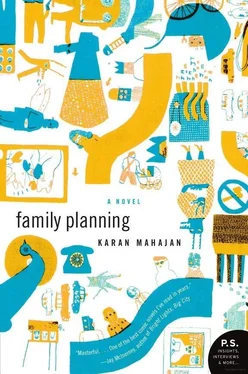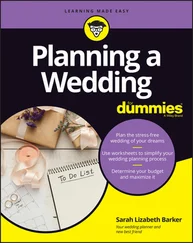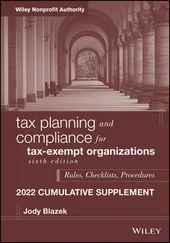Apparently she did. She gravely nodded and said, “When is your concert?”
What did he look like to her? he wondered. Was his hair sleekly angled so as to cover his massive forehead? Had she noticed the way his nose was ribbed in the center?
He said, “No set date yet.”
Aarti looked crushed that he hadn’t mentioned a date she could have mulled over, considered, and then denied with an explanation of how busy she was.
Now it was her turn to be silent.
“When are you free?” he asked.
She scrunched up her eyes and thought and thought and thought. “Sundays only.” Then she added, “And even then I am busy sometimes. My Dadi is very religious and we have to go to the mandir and do this puja for three hours. I can’t tell you how boring it is, yaar. First, we sit on the floor and the pandit brings samagri and oil. Then we recite Om Bhur Bhava Swaha fifty-five times. I believe in God, but do I have to say it fifty-five times? So yaah. Even on Sundays sometimes I am with my family.”
“So what?” said Arjun. “You can bring your Dadi and your Mama and your Papa — whoever. The concert will be part of a flyover opening. My dad is a minister.”
“Your dad’s a minister?”
“Not corrupt, I swear. So far, I think I’m the only one taking any kickbacks in the family.”
This was his standard line for girls.
“You mean?”
“Football team,” he said. (He wasn’t on the football team.)
She laughed. “What’s your dad’s name?”
“Rakesh Ahuja. He’s the Minister of Urban Development.” He quickly added, “He wasn’t involved in the Gujarat riots.”
“No, no, I’m sure.”
“Yes. And he hates Yograj. You know? Yograj Commission. The guy who caused the Gujarat riots.”
“Accha,” she said. He could tell she appreciated his openness. She continued. “I hate him too. When the riots happened, I wanted for the first time to be a politician, yaar. I thought this is really too much. In this day and age for this to happen. But everyone makes fun of me for being idealistic. Also, you cannot enter politics without time and connections. I have neither—”
Marry me! thought Arjun. Marry me!
Then the bus braked and he strode past her and stepped off the goddamn bus into the divine and dehydrating afternoon light.
Now all he needed was to organize a concert. On a Sunday. He walked home with growing excitement. He’d talk to his brothers and sisters. He couldn’t tell them what he had seen last night in the nursery, obviously not: firstly, it was disgusting, and secondly, people have sex all the time in this country, doing it in fields and huts and buses and naalis and even in servants’ quarters when your master was shouting “Raamu, please get the chai,” and you ignored him because you were thinking, “Oh! How nice would it be to have one billion and five children in this country as opposed to one billion and four !” and it really wasn’t something he could describe.
But he could tell them: Listen, I am in a band.
He could gather them in the backyard and say: Okay, it’s a little more complicated: I am in a band with three dudes to impress a girl.
He could run his hands through the thickening tuft of his hair and say: Listen, if I help you with trigonometry homework, will you come watch my band play and bring five of your friends along, preferably female since you go to the co-ed schools and females are the biggest fans of male-made rock music? Remember, five times eight is forty, which is how many people will attend my concert if you help me, and is also proof that I can help with maths! And if you say no, then I will tell Mama and Papa that you (Varun) smashed the window of the Ambassador, and that Rishi broke…
Yes. He’d organize a concert in Aarti’s honor. He walked home through lashings of dust.
CHAPTER 5. MR. AHUJA RESIGNS
MMR. AHUJA, MEANWHILE, was resigning in Arjun’s honor.
Making a decision to resign was easy enough: Mr. Ahuja had done so sixty-two times in his career. He’d learned early on that in a lethargic political system — racked with sluggish subcommittees, idle parliaments, and five-year promises — the fastest way to get one’s own government to take action was to throw a massive tantrum. To hand in one’s “papers.” To complain to the press.
The breakdown of his resignations was roughly as follows:
Over irritations caused by colleagues in the Flyover Fast-Track: 37
Over being offered a share of a corrupt deal: 15
Over anti-Muslim legislation (such as renaming streets in Delhi so as to have distribution of Muslim and Hindu names proportional to the respective populations, or the establishment of a Hindu Holocaust Museum that declared that nearly 10 million Hindus had been massacred by Muslim invaders): 6
Over not being offered a share of a corrupt deal (these were those rare deals where every single member of the party was involved — why should he have been left out? Didn’t he have thirteen children to educate?): 2
Over snide remarks directed at him about family planning: 2
What would happen after he sent in his letter was routine. He’d take a day off from work. He’d ignore phone calls and refuse to clear files. The Super Prime Minister — Mrs. Rupa Bhalla — would call him up and say, What is the matter? Then, when Rakesh explained, she’d cajole and weep and invite him to dinner and request him to stay. Let’s reach a compromise, she’d say. He’d decline. She’d beg, the small knot of her hands quivering on her gargantuan thigh. He’d be terrified. He’d stay. It was crucial that everything have the clap-till-you-drop predictability of an encore at a concert.
More often that not, the problem was fixed.
Now Rakesh sat in his office at the Ministry of Urban Development and fiddled with the ragged papier-mâché box that contained his sixty-two letter-headed missives. This was the first time he was actively searching for a reason to resign. He simply wanted the day free to talk to Arjun.
He pressed his buzzer.
There was a cough behind him. Mr. Ahuja turned around.
Sunil Kumar, answerer of buzzes, token drone of the bureaucratic beehive, purveyor of chai: Sunil Kumar stood before Mr. Ahuja in a perfect, diligent slouch.
“Bring me chai,” said Mr. Ahuja.
“Yes, sir. Also, there is a file for you from the Ministry of Minorities.”
Then he disappeared. After a few minutes, he returned, sans chai.
“The file?” Mr. Ahuja asked Sunil Kumar, staring out the window.
“The file is in your office only.”
Sunil Kumar was shouting but neither Mr. Ahuja nor he noticed. Years of working together had guaranteed them an equivalent deafness.
“It is not here, yaar. Otherwise I wouldn’t call you,” Mr. Ahuja said, speaking into the glass. It was suddenly as if he were at a huge rally — perched upon a pedestal four stories high, suave and sage-like in a giant, bulletproof box. The only flaw in the design was that the audience happened to be inside the box with him. He couldn’t be saved.
“Sir, you are looking sad,” Sunil said. “Besides, it is bad when the nose of a great man is touching the window, no?”
“What?”
“Sir, are you seeing that bird on your table?” He pointed to a small curio on Mr. Ahuja’s table, a tiny silver bird reposing perilously, almost magically, on the sharp tip of its beak — the remainder of the torso suspended in air like a seesaw waiting to drop. “Well sir, the nose is a great man’s center of gravity as well. And so sir if you are pushing against the window, then perhaps it is showing some deeper sadness.”
Читать дальше












